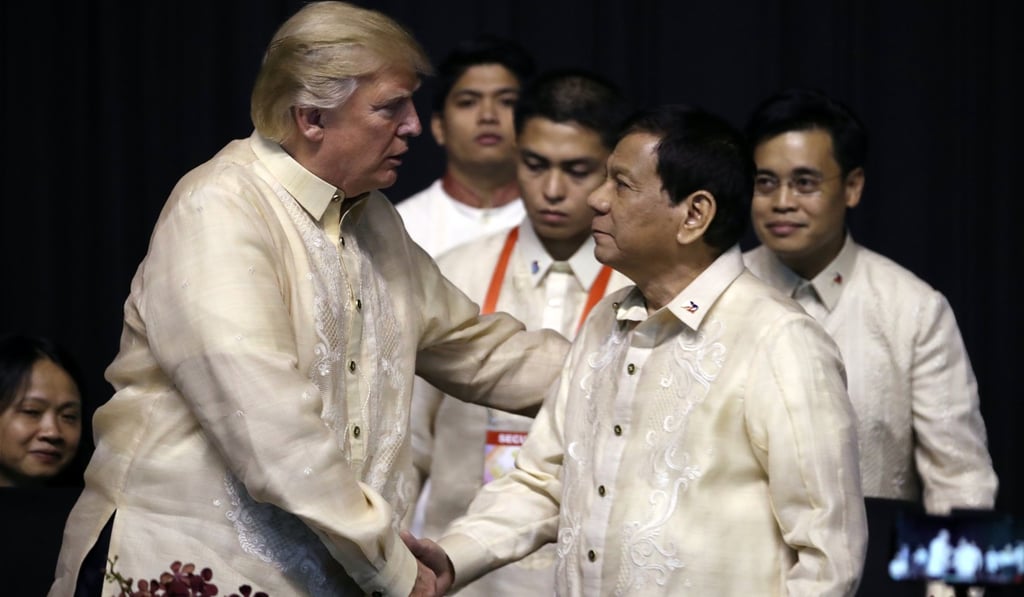Advertisement
Ending Philippines-US military pact will affect South China Sea disputes: analysts
- Philippine President Rodrigo Duterte wants to end the agreement governing US forces in the Philippines and US leader Donald Trump doesn’t mind
- Experts say it will have an impact on calculations by Southeast Asian countries in the South China Sea dispute and be a ‘huge win for China’
Reading Time:5 minutes
Why you can trust SCMP

After years of threatening to abandon the Philippines’ military alliance with the United States, President Rodrigo Duterte last week confirmed plans to terminate the agreement governing the presence of American troops, a key part of one of Southeast Asia’s major security partnerships.
Advertisement
The announcement was widely interpreted as an attempt by Duterte to extract concessions from Washington, which regards military cooperation with Manila as crucial to countering Beijing’s activities in the South China Sea. US President Donald Trump, however, told reporters he had no concerns about the treaty being scrapped.
“I really don’t mind, if they would like to do that,” Trump said on Wednesday. “We’ll save a lot of money.”

Between 2016 and 2019, the US spent US$550 million on military assistance to the Philippines, which is also a top recipient of US aid – second only to Indonesia in Asia – receiving nearly US$280 million in 2018, according to the US aid agency.
Advertisement
The Visiting Forces Agreement (VFA) is one of three pacts governing the US-Philippines defence relationship. Experts warn that without it, the other two – a mutual defence agreement and the 2014 enhanced defence cooperation agreement, known as EDCA – will be substantially less effective. The agreements provide for training and assistance to the Philippines’ military modernisation effort as well as annual joint military exercises.
US Defence Secretary Mark Esper last week described the termination of the VFA as “unfortunate” and “a move in the wrong direction”.

Advertisement